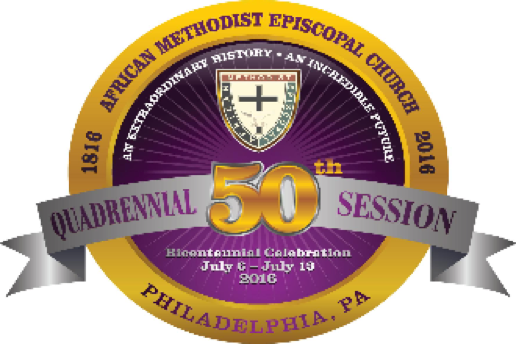By Ryan J. Smith, Blessed Tomorrow
The African Methodist Episcopal Church, the oldest independent Protestant denomination founded by Black people in the world and Blessed Tomorrow’s partner organization, has passed a Climate Change Resolution. During the 50th quadrennial AME General Conference held in Philadelphia, PA, July 6-13, 2016, more than 30,000 clergy, laity, and leaders voted to approve a resolution to support climate policies that will protect families, create healthy and safe communities, and build a clean energy future.
Clergy and community members urged AME Church leaders to increase support for national, state, and local climate policies that align with the 2015 Paris Climate Agreement to reduce global carbon emissions. Bishop John White, the Council of Bishops President, shared, “The AME Church has a deep history of ministering to the social, spiritual, and physical development of all people. Damage to our climate puts the health of children, elderly, and those with chronic illnesses at greater risk and disproportionately impacts African Americans. We believe it is our duty to commit to taking action and promoting solutions that will help make our families and communities healthier and stronger.”
Millions of Americans “live close to polluting coal plants,” explains the resolution, “39 percent of which are low-income communities and communities of color.” Despite being the most impacted by climate change through increased floods, storms, and compromised health, these communities are often underrepresented “in the decision-making processes that would lead to a clean, healthy, and prosperous environment.”
The resolution urges AME Church “leaders, ministries, congregations, laity, and members…to engage with their communities and elected officials.” The church will “help build stronger communities that protect us from the harmful impacts of damage to our climate.” This groundbreaking commitment will “build awareness and support for climate solutions by inspiring and empowering congregants with actionable information, powerful engagement tools, and best practice resources.”
Bishop White contends that “every facet of our church life has got to help people become consciously aware of the environment.” Bishop Jackson, Chair of the Social Action Commission, reverberated with this point, sharing, “I don’t think that you can separate care for the environment from faith.” Jackson went on to say that the AME Church is committed “to informing and motivating people” to act on all levels of policy formation.
“Well-positioned” AME leaders “have a voice in the decisions the government is making that will affect climate change,” according to Bishop Richard Norris. One of these well-positioned leaders is Bishop McKenzie, a longtime member of Blessed Tomorrow’s leadership circle, who is uniquely situated to lead on climate, having served on the President’s Advisory Council of the White House Faith-Based and Neighborhood Partnerships under the Obama administration. Echoing Bishop McKenzie’s call are lay leaders such as Jackie Dupont-Walker, Director of the AME Church’s Social Action Commission, who finds motivation in the church’s long history of social action. “The AME Church has always been on the cutting edge for our people, and [climate change] is one we have to be on the cutting edge for,” shared Dupont-Walker.
For over two hundred years, the AME church has remained on the forefront of social action, beginning in 1793 when an epidemic of yellow fever swept across Philadelphia, claiming the lives of four thousand people during one the worst recorded outbreaks involving the nefarious illness. While many ran from the infection, AME Church founder Richard Allen ran toward it, offering assistance to his community. Two hundred years later, Allen’s leadership remains a salient example for AME Church clergy and lay people on issues of social responsibility. Expanding beyond its Pennsylvania origin, the now twenty Episcopal districts in thirty-nine countries on five continents will continue to echo Allen’s legacy with a strong call to address climate change through leadership.
Learn more about the AME Church’s commitment to climate leadership with Blessed Tomorrow here.
Read the full climate resolution here.

